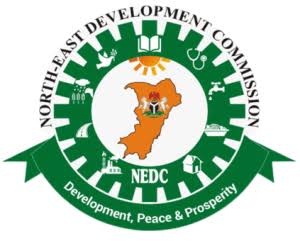There is no contesting the fact that “there is wealth in waste” suggesting therefore, that unemployed youths can manage waste as a business. Analysts assert that most Nigerian cities treat waste as a purely technical issue. However, waste management is a money spinning industry that is huge and ever-growing.
Government needs to educate the people and create awareness among different sectors of the society, setting sufficient budgets and assisting companies and facilities for planning, research and waste management processes, that can help to relax the issues to an extent, if not eradicating it completely.
These actions not only help in protecting environment, but also help in employment generation and boosting the economy. Given the fact that waste management was not considered an issue few decades ago, many people had not given it serious attention.
However, there is an increasing awareness and hence waste management is being treated as an environmental sustainability issue. As such, this has become every ones’ business without class – the government and the citizenry alike, to accord utmost priority to effective waste management, so as to ensure sustainable development.
Indeed, this realisation informs the decision of the North East Development Commission-NEDC- to aggressively embark on waste management training for youth entrepreneur. In collaboration with Emblematic Imprints Nigeria Ltd, NEDC has engaged youths on waste management training to create employment and bring about a clean and sustainable environment.
Interestingly, some of the youths who were trained on waste management are gainfully engaged with high prospects of being employers of labour. Among them is Gadafi Abubakar Shekara, a 37-year -old graduate of Information Technology with Taraba State University and a specialist in Computer Programming. Shekara resides in Jalingo, Taraba State capital.
When asked how the training has impacted his life, Shekara responded, “The training has added economic value to my life. I was trained on how to turn waste to wealth. The materials I have seen as waste then on the street, today I use them to make earnings for myself, both plastics, metals, fruits and so many other wastes. I was also trained on how to separate metals, plastic and fruit. I now know how to turn fruits into organic fertiliser, the challenge now is how to get the manufacturing equipment to operate my own factory,” he lamented.
Like Shekara, Mutala Abdulahman Bashir, is a 38-year-old graduate of Information Communication Technology from Madibo Adama University Yola, who has benefitted from this initiative. Bashir, who said he was into scavenging before securing varsity admission, said it is not difficult for him to join waste management training when the NEDC opportunity beckoned.
On how he intends to make use of the training, Bashir said, “I was very happy when the NEDC selected me to participate in the training on how to turn waste to wealth. I can simply use waste fruit and turn it to organic fertiliser. I know how to select the waste that has been dumped on the street and make use of each particle in different ways and means.”
Speaking in a similar manner, Gambo Gidado, a graduate of Political Science from University of Abuja, said before the NEDC’s waste management training, the MTN engaged him as a SIM Card Registration Officer.
“I hope to make use of the days I spent during the training, to develop my life. Now, I can even train other youths on how to make money through waste.
I have the experience to pick waste and convert it into wealth. What am lacking now is starter kits, as I do not have money to purchase the equipment to establish my own factory. But I am telling you for sure that I have the knowledge and that if any opportunity comes, I can make the best use of it for the NEDC workshop.”
The NEDC’s waste to wealth training is indeed, part of the Agency’s poverty eradication through job creation initiative, which is one of the overall plans of stabilising the troubled North East region. It is clear that the initiative is helping to boost the capacity of its numerous beneficiaries.





